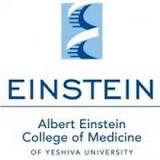Meditation-Based Breathing Training in Improving Target Motion Management and Reducing Distress in Patients With Abdominal or Lung Cancer Undergoing Radiation Therapy
| Status: | Terminated |
|---|---|
| Conditions: | Anxiety, Lung Cancer, Cancer, Cancer, Cancer, Cancer, Chronic Pain, Depression, Depression, Psychiatric, Psychiatric |
| Therapuetic Areas: | Musculoskeletal, Oncology, Psychiatry / Psychology |
| Healthy: | No |
| Age Range: | 18 - Any |
| Updated: | 5/20/2018 |
| Start Date: | February 2010 |
| End Date: | December 2, 2015 |
Influence of Meditation-Based Breathing Training on Target Motion Management and Distress During Radiation for Abdominal and Lung Malignancies
This randomized pilot clinical trial studies the effects of meditation-based breathing
training on patients' control of their breathing patterns and breathing-related movement, as
well as on their psychological distress and treatment experience during radiation therapy.
Meditation-based breathing training may decrease breathing-related movement and the amount of
stress by improving breathing patterns in patients with abdominal or lung cancer undergoing
radiation therapy.
training on patients' control of their breathing patterns and breathing-related movement, as
well as on their psychological distress and treatment experience during radiation therapy.
Meditation-based breathing training may decrease breathing-related movement and the amount of
stress by improving breathing patterns in patients with abdominal or lung cancer undergoing
radiation therapy.
PRIMARY OBJECTIVES:
I. To evaluate the influence of regular breathing cycles using breathing relaxation
techniques on efficacy of the respiratory-gated treatment as measured by: (1) real-time
position management (RPM) parameters; (2) end inspiration or expiration length; (3) changes
in gate width.
SECONDARY OBJECTIVES:
I. To evaluate the effect of breathing relaxation techniques on: (1) psychosocial outcomes;
(2) treatment compliance.
OUTLINE:
PHASE I: Patients and staff members complete structured interviews at baseline.
PHASE II: Patients are randomized to 1 of 2 arms.
ARM I: Patients participate in 3 50-minute breathing training sessions, including a
psycho-educational component and meditation-based breathing training, over 10 days. Patients
then undergo four dimensional computed tomography (4D-CT) on day 14 and undergo image-guided
stereotactic body radiation therapy (SBRT) or standard radiation therapy 5 times a week for
up to 5 fractions or 25 fractions, respectively.
ARM II: Patients receive standard care over 10 days. Patients then undergo 4D-CT on day 14
and undergo image-guided SBRT or standard radiation therapy 5 times a week for up to 5
fractions or 25 fractions, respectively.
After completion of study treatment, patients are followed up at 2 or 5 weeks.
I. To evaluate the influence of regular breathing cycles using breathing relaxation
techniques on efficacy of the respiratory-gated treatment as measured by: (1) real-time
position management (RPM) parameters; (2) end inspiration or expiration length; (3) changes
in gate width.
SECONDARY OBJECTIVES:
I. To evaluate the effect of breathing relaxation techniques on: (1) psychosocial outcomes;
(2) treatment compliance.
OUTLINE:
PHASE I: Patients and staff members complete structured interviews at baseline.
PHASE II: Patients are randomized to 1 of 2 arms.
ARM I: Patients participate in 3 50-minute breathing training sessions, including a
psycho-educational component and meditation-based breathing training, over 10 days. Patients
then undergo four dimensional computed tomography (4D-CT) on day 14 and undergo image-guided
stereotactic body radiation therapy (SBRT) or standard radiation therapy 5 times a week for
up to 5 fractions or 25 fractions, respectively.
ARM II: Patients receive standard care over 10 days. Patients then undergo 4D-CT on day 14
and undergo image-guided SBRT or standard radiation therapy 5 times a week for up to 5
fractions or 25 fractions, respectively.
After completion of study treatment, patients are followed up at 2 or 5 weeks.
Inclusion Criteria:
- PHASE I - PATIENTS: All patients with abdominal tumors who have undergone at least 4
respiratory-gated radiotherapy treatments
- PHASE I - PATIENTS: Full comprehension of English language
- PHASE I - STAFF: All staff who have overseen the delivery of respiratory-gated
radiotherapy for at least 6 months
- PHASE I - STAFF: Full comprehension of English language
- PHASE II: All patients with abdominal or lung tumors undergoing a respiratory gating
simulation
- PHASE II: Karnofsky performance status > 60%
- PHASE II: Life expectancy > 3 months
- PHASE II: No prior radiotherapy to the abdomen/lung
- PHASE II: Full comprehension of English language
Exclusion Criteria:
- PHASE I - PATIENTS: Inability to comprehend English language interview questions
- PHASE I - STAFF: Inability to comprehend English language interview questions
- PHASE II: Karnofsky performance status < 60%
- PHASE II: Prior radiotherapy to the abdomen/lung
- PHASE II: Evidence of progressive or untreated gross disease outside of the
abdomen/lung
- PHASE II: Inability to comprehend English language breathing exercise instructions
- PHASE II: Concurrent diagnosis of a significant respiratory disorder which requires
the use of oxygen
We found this trial at
1
site
Albert Einstein College of Medicine The Albert Einstein College of Medicine of Yeshiva University is...
Click here to add this to my saved trials
